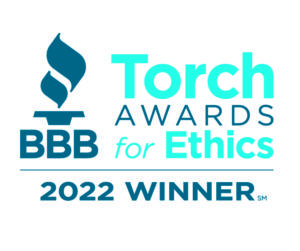Reminder: The deadline for the final 2022 estimated tax payment is January 17!
While it may feel like you’re mainly paying taxes during “tax season,” the IRS wants to receive their chunk of your income as you’re earning it. If you’re an employee, this manifests in the form of your withholding. Retirees have their taxes withheld from their Social Security payments and retirement plan distributions.
However, not all incomes are subject to withholding — such as self-employed income, interest payments, rental income, capital gains, alimony, dividends, etc. If you receive any of these, your income may not be subject to tax withholding, and you may have to file Form 1099-NEC to make estimated tax payments.
In such cases, the final estimated tax payment for 2022 is due Tuesday, January 17th, 2023.
Who Needs to Pay Estimated Tax
- Corporations who expect to owe tax of $500 or more when the return is filed
- Individuals, partners, and S corporation shareholders who expect to owe $1,000 or more in taxes when their returns are filed. This also applies if any of these individuals owed tax in the prior year.
You may need to make estimated tax payments if you:
- Receive income not from an employer – includes interest, dividends, alimony, capital gains, prizes, and awards
- Have tax withheld from your salary or pension but not enough.
- Have more than one job but any or all employers don’t withhold taxes
- Are self-employed
- Are a representative of a direct-sales or in-home-sales company
- Are participating in freelance work where you are not working as an employee
Who Does Not Need to Pay Estimated Tax
If you filed a form W-4 with your employer, you should not have to file estimated tax. If you want to make sure that the right amount of tax is withheld from your paycheck, you can use the Tax Withholding Estimator.
You definitely do not have to pay estimated tax for 2022 if all three of the following apply to you:
- You had no tax liability for 2021
- You were a U.S. citizen or resident alien for the whole year
- Your 2021 tax year covered a 12-month period
How to Calculate Estimated Tax
Typically, you can use Form 1040-ES to figure their estimated tax. Nonresident aliens use Form 1040-ES(NR). In order to figure your estimated tax, you’ll need your adjusted gross income, taxable income, taxes, deductions, and credits for the year.
How to Pay Estimated Taxes
If you owe estimated tax for Q4 of 2022, you have the option to pay online, by phone, or by mail. You can also pay using IRS Direct Pay or the Electronic Federal Tax Payment System. You also don’t have to only pay quarterly, as long as your payments total what is owed by the end of the quarter.
Consequences for Not Making Your Estimated Tax Payment
If you do not make your estimated payments, make late payments, or only pay a partial amount of what is due, you will be charged a penalty. This is true even if you are due a refund when you file your tax return. This penalty might be waived if you owe less than $1,000 in estimated tax. There are also special circumstances that affect the requirements for estimated tax amounts due as well as for waiving penalties. For more information, visit the IRS page on estimated tax payments, or contact one of our tax experts.
Thinking about your taxes doesn’t end on Tax Day. For year-round support, reach out to your Boxelder consultant today and never miss a deadline! 
Get Ahead – Schedule A Tax Consultation With A Boxelder Accountant Today!
Don’t let your child get left behind when they take their first steps into adulthood. Our tax professionals have helped thousands of Coloradans file their taxes and comply with FAFSA regulations. Reach out to a Boxelder tax professional today and keep your child’s future secure.
